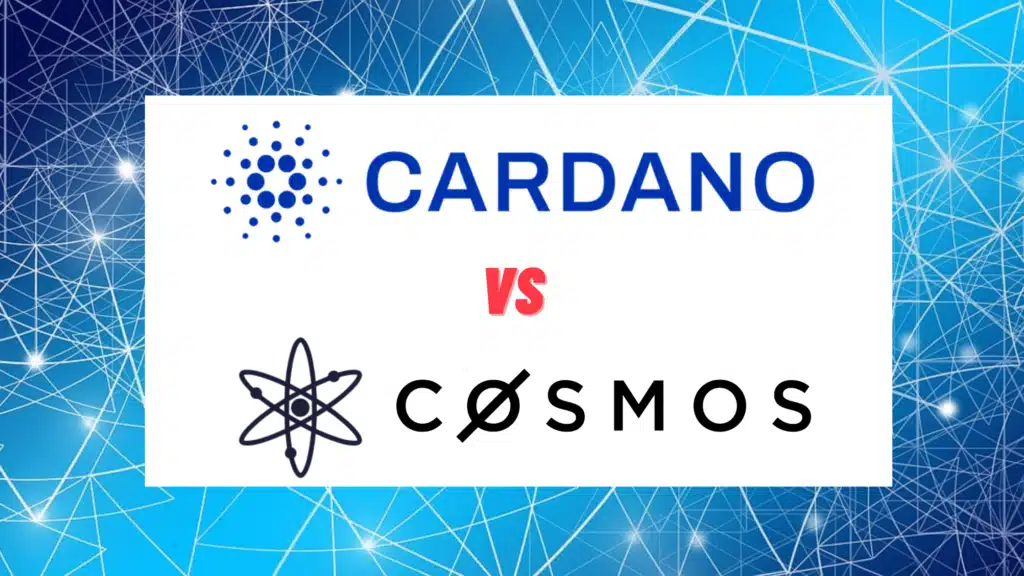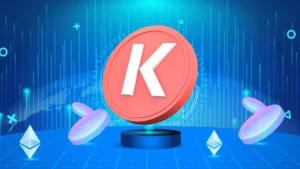This is article 9/11 in Part II of our series, How To Build Wealth and Grow Your Crypto Portfolio by Staking.
To read the seventh article click the PREVIOUS ARTICLE button below.
Key Takeaways
Staking pools and staking directly with a validator are two different methods for participating in the consensus process and earning block rewards.
Some Proof of Stake networks use staking pools and others require staking directly with a validator.
Staking pools have advantages and disadvantages.
Staking directly with a validator has advantages and disadvantages.
Staking Pools vs Direct Validation: A Comparison of Cardano and the Cosmos Hub

Sometimes delegators tell us they want to “join our pool.” However, ATOM, KAVA, and MATIC staking is done directly with a validator, not into a pool.
Staking pools and staking directly with a validator are two different methods for participating in the staking process of Proof of Stake (PoS) cryptocurrencies.
Both offer unique benefits, so we will compare them and highlight their differences.
Check out our article: How To Choose The Right Cryptocurrency For Staking.
How do staking pools differ from staking directly with a validator?

Cardano uses a delegated PoS (dPoS) model, where ADA holders can delegate their tokens to staking pools. These pools are managed by pool operators who validate transactions and create new blocks on behalf of the pool members.
The ADA rewards earned from staking are distributed among the pool members proportionally to their delegated stake, minus a small fee for the pool operator.
Features of Cardano staking pools
Accessibility: Staking pools offer a low barrier to entry, allowing small token holders to participate in the staking process without needing a large amount of tokens or technical expertise.
Risk Reduction: By joining a staking pool, participants share the risks associated with staking, like the potential for slashing due to the pool operator’s actions or technical issues.
Reward Distribution: Staking pools distribute the staking rewards among all pool members proportionally to their delegated stake, minus a small fee for the pool operator.
If your delegation equals 1% of the tokens in the pool, you would earn 1% of the staking rewards.
Less Control: Staking pool participants have less control over the validation process and governance decisions. These responsibilities lie with the pool operator.
Diversification: Token holders can delegate their stake to multiple pools, spreading the risk and increasing the potential for rewards.
Here’s a Cardano ADA staking pool for reference.
Staking ATOM with a Cosmos Hub validator

Cosmos Hub uses a variant of PoS called bonded Proof of Stake, where ATOM holders can either become validators themselves or delegate their tokens to validators.
Money and technical knowledge is needed to run a validator node, so delegating is a much simpler option.
Stakers delegate their token voting power to validators. The voting power helps validators confirm transactions, create new blocks, and participate in governance decisions.
Delegators then earn rewards based on the performance of the validator they have chosen. Here’s our Blocks United validator page on mintscan.
Features of staking ATOM directly with a Cosmos Hub validator
Increased Control: Delegators select validators with a good track record and reasonable commission. This requires a little research, but it is not all that difficult or time consuming.
Potential for Higher Rewards: If a delegator selects a high-performing validator, they can potentially earn higher rewards than if they were participating in a staking pool.
Active Governance Participation: Validators and their delegators can participate directly in the governance process, influencing the future direction of the cryptocurrency ecosystem.
Cosmos delegators have the power to vote differently than the validator they have staked with. Their vote trumps the validator’s vote.
Higher Knowledge Requirement: Staking directly with a validator can require a deeper understanding of the staking process. Check out our article, How To Choose a Validator for more detail.
Increased Risk: Delegators who stake directly with a validator bear the full risk of potential slashing if their chosen validator performs poorly or behaves maliciously.
If a validator is offline and misses 9500 out of the most recent 10,000 blocks, 0.01% of all tokens staked on that node are slashed. If the validator double signs a block (possibly meaning they say funds went one place when they actually went to another), 5% of all tokens staked on the node are slashed. That validator is then permanently tombstoned and removed from the active set of validators.
Conclusion
Ultimately, the choice between staking with a pool or directly with a validator depends on the blockchain setup. Neither Polygon, Kava, nor Cosmos offer staking pools.
Staking your MATIC, KAVA, and ATOM tokens directly with a validator is your only option. Cardano staking pools are the only option for those who wish to stake their ADA. The ecosystems are designed differently.
Staking pools can be better suited for those who prefer a hands-off approach with lower risk and minimal knowledge, while staking directly with a validator is more appropriate for those who desire more control, involvement, and potentially higher rewards.
To see exactly how to stake your tokens directly with a validator, check out our tutorials: Staking ATOM, Staking KAVA, and Staking MATIC.
Don’t miss our next article: Why It’s Important to Stake With Small Validators.
Be sure to read our article, Why You Shouldn’t Stake With Coinbase, or any centralized exchange.
Frequently Asked Questions
Multiple users combine their tokens to increase their chance of earning block rewards. Rewards are distributed proportionally to the amount each person has staked. Slashing penalties are also distributed to those same proportions, providing a little downside protection.
Of course. All investments have risk. Staking pools have the risk of decreased control, lower rewards and disappointing returns, and slashing.
Not all staking pools are profitable. The pool is managed by a pool operator, so it is a good idea to research the various pools available, fees, performance, etc.
Most blockchains require you to delegate your tokens directly to a validator. Staking pools are not all that common. Cardano is the most widely known crypto to employ staking pools.
Staking pools are great options for smaller investors who cannot meet minimum staking requirements. ATOM delegators are only required to bond at least one token. Whereas Polkadot requires delegators to have at least 250 DOT to stake.
Staking not only requires less energy, but individual miners must run computers. Proof of Stake delegators don’t have to operate servers. The validators operate the servers and charge a commission for doing so. Staking is much simpler than mining.
Generally yes, but there are no guarantees. The average person used to be able to mine bitcoin from home, but huge mining farms with tons of hash power have made that almost impossible.
Staking PoS tokens is simpler, less expensive and potentially more profitable than running your own miner. Profit depends on the token you’ve staked, the amount of outstanding token supply that is staked, fees from network activity, the validator commission, and your validator’s performance.
Nothing we say is financial advice or a recommendation to buy or sell anything. Cryptocurrency is a highly speculative asset class. Staking crypto tokens carries additional risks, including but not limited to smart-contract exploitation, poor validator performance or slashing, token price volatility, loss or theft, lockup periods, and illiquidity. Past performance is not indicative of future results. Never invest more than you can afford to lose. Additionally, the information contained in our articles, social media posts, emails, and on our website is not intended as, and shall not be understood or construed as financial advice. We are not attorneys, accountants, or financial advisors, nor are we holding ourselves out to be. The information contained in our articles, social media posts, emails, and on our website is not a substitute for financial advice from a professional who is aware of the facts and circumstances of your individual situation. We have done our best to ensure that the information provided in our articles, social media posts, emails, and the resources on our website are accurate and provide valuable information. Regardless of anything to the contrary, nothing available in our articles, social media posts, website, or emails should be understood as a recommendation to buy or sell anything and make any investment or financial decisions without consulting with a financial professional to address your particular situation. Blocks United expressly recommends that you seek advice from a professional. Neither Blocks United nor any of its employees or owners shall be held liable or responsible for any errors or omissions in our articles, in our social media posts, in our emails, or on our website, or for any damage or financial losses you may suffer. The decisions you make belong to you and you only, so always Do Your Own Research.









